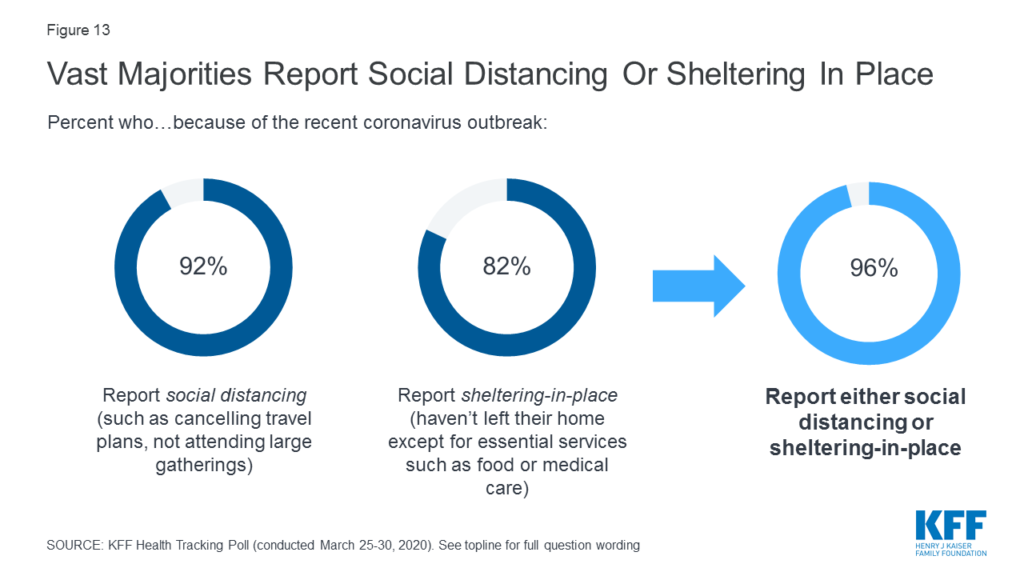 As the coronavirus pandemic’s curve of infected Americans ratchets up in the U.S., people are seeking comfort from listening to Dolly Parton’s bedtime stories, crushing on Dr. Anthony Fauci’s science-wrapped-with-empathy, and streaming the Tiger King on Netflix.
As the coronavirus pandemic’s curve of infected Americans ratchets up in the U.S., people are seeking comfort from listening to Dolly Parton’s bedtime stories, crushing on Dr. Anthony Fauci’s science-wrapped-with-empathy, and streaming the Tiger King on Netflix.
These and other self-care tactics are taking hold in the U.S. as most people are “social distancing” or sheltering in place, based on numbers from the early April 2020 Kaiser Family Foundation health tracking poll on the impact of the coronavirus on American life.
While the collective practice of #StayHome to #FlattenTheCurve is the best-practice advice from the science leaders at CDC, the NIAID and the U.S. Surgeon General, the fact is that a growing number of Americans are feeling negative mental health impacts…and it’s only early April in what will be a many-month new-normal of physical distancing.
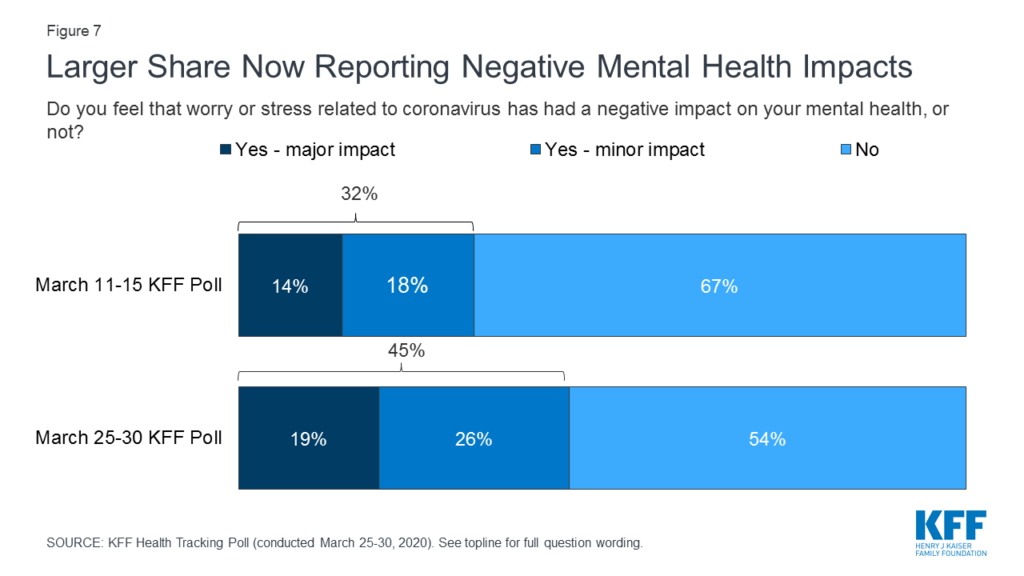 These feelings will no doubt exacerbate this Holy Week for Christians and Jews, when Passover Seders will be conducted virtually, family and friends coming together via Zoom and Google Hangout prayer readings, singing and dining over matzo ball soup; and Good Friday and Easter Sunday services streamed from churches, and ham and lamb being carved on those same virtual technology platforms convening loved ones at this spiritual time…
These feelings will no doubt exacerbate this Holy Week for Christians and Jews, when Passover Seders will be conducted virtually, family and friends coming together via Zoom and Google Hangout prayer readings, singing and dining over matzo ball soup; and Good Friday and Easter Sunday services streamed from churches, and ham and lamb being carved on those same virtual technology platforms convening loved ones at this spiritual time…
Such is life in the Coronavirus Era in America.
Back to the data from the KFF health tracking poll, which found that the percent of people feeling a major impact of stress or worry related to COVID-19 was 14% between March 11-5, rising to 19% between March 25-30 and those feeling a minor impact of stress or worry rising from 18% to 26%. Together, stress and worry grew from 32% of American adults in mid-March to 45% of people in late March…approaching one-half of Americans feeling stress due to the pandemic.
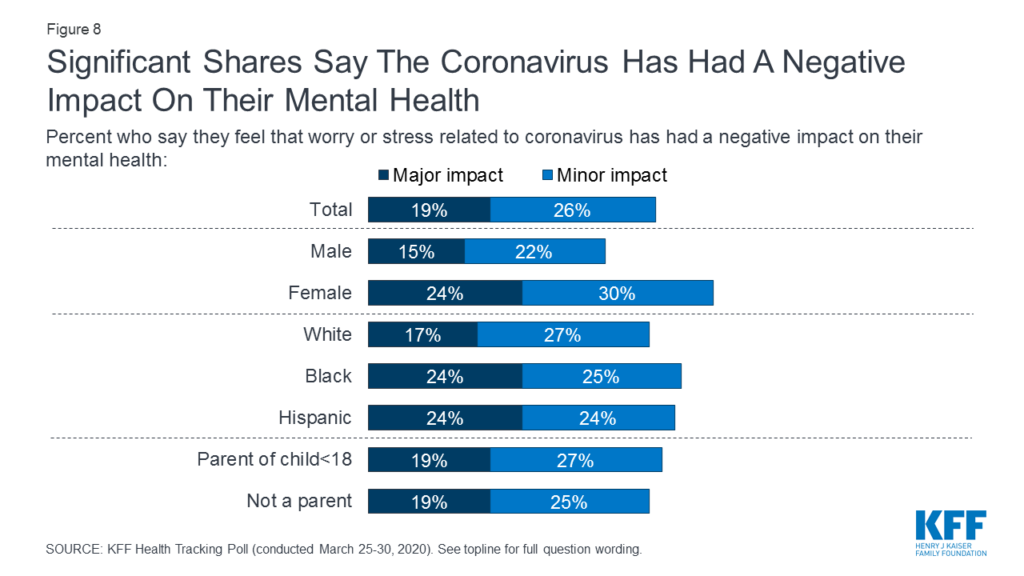 Within that 45% of people feeling stress and worry due to C19, the third graphic shows demographic differences between Americans. The most obvious difference was seen between women and men: many more women than men felt significant stress due to COVID-19 in late March, a margin of 54% of women compared with 44% of men.
Within that 45% of people feeling stress and worry due to C19, the third graphic shows demographic differences between Americans. The most obvious difference was seen between women and men: many more women than men felt significant stress due to COVID-19 in late March, a margin of 54% of women compared with 44% of men.
Having children didn’t make much of a difference in stress levels.
But children, too, are experiencing mental health impacts of the pandemic, which is getting attention in both local and national media. A few articles that have informed me include…
In The Atlantic, the piece The Kids Aren’t Alright explained how the youngest health citizens in the country may experience the greatest long-time mental health trauma, learning from Wuhan’s experience with C19 back to Katrina and the impacts of adverse childhood events.
USA Today covered how to parent during the pandemic, highlighting a study from the University of Michigan on stress and parenting in the C19 crisis.
From The Lancet, how to effectively communicate information about COVID-19 with children, with the key takeaway that,
Adults need to be authentic about some of the uncertainty and psychological challenges of the pandemic, without overwhelming children with their own fears. This honesty not only offers a coherent explanation for what children are observing, but also grants permission for children to safely talk about their own feelings. Normalising their emotional reactions and reassuring children about how the family will look after each other helps to contain anxiety and provides a shared focus.
We should also be mindful that the mental health of our front-line health care workers is on the line every minute of every day in fight the coronavirus in our communities’ hospitals and doctors’ offices. CNN covered this daunting challenge for our public and individual health, which brings the concept of the Quadruple Aim into such a painful, real-time visceral perspective.
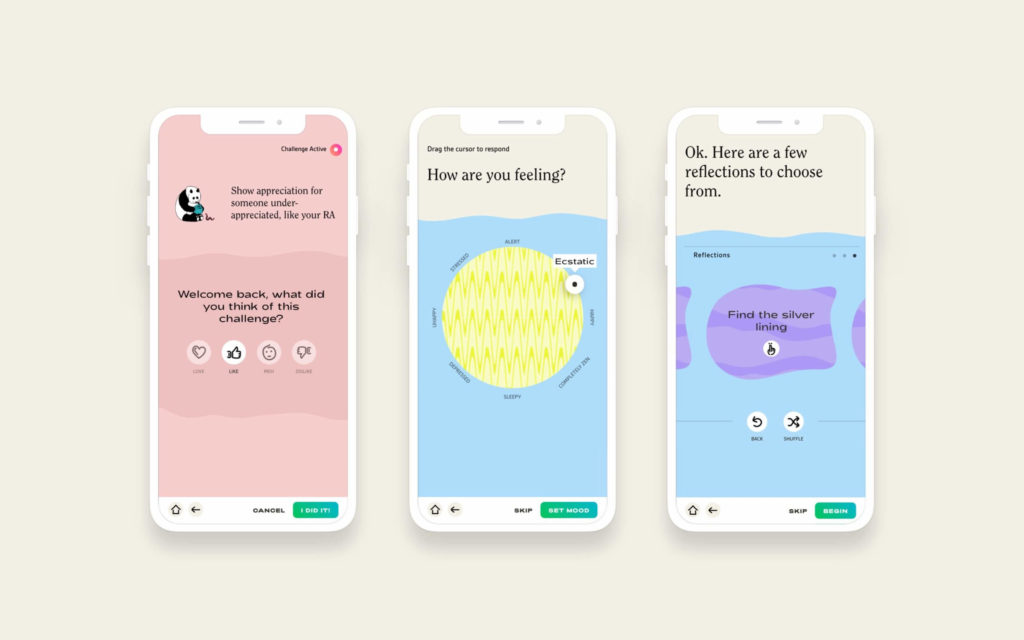 Health Populi’s Hot Points: The coronavirus pandemic is inspiring so much innovation leveraging digital tools with evidence-based science and psychology. In seeking solutions to support our mental health and resilience, I want to highlight an innovation launching today from HopeLab and Grit Digital Health who collaborated on Nod.
Health Populi’s Hot Points: The coronavirus pandemic is inspiring so much innovation leveraging digital tools with evidence-based science and psychology. In seeking solutions to support our mental health and resilience, I want to highlight an innovation launching today from HopeLab and Grit Digital Health who collaborated on Nod.
Originally conceived to enable college students to connect during times of crisis, the digital health tool has been adapted for the coronavirus pandemic’s social distancing reality which can exacerbate feelings of loneliness and isolation.
“Loneliness was a huge issue before this pandemic hit, and now students are more isolated than ever,” Joe Conrad, Grit Digital Health’s Founder and CEO observed in the project’s press release.
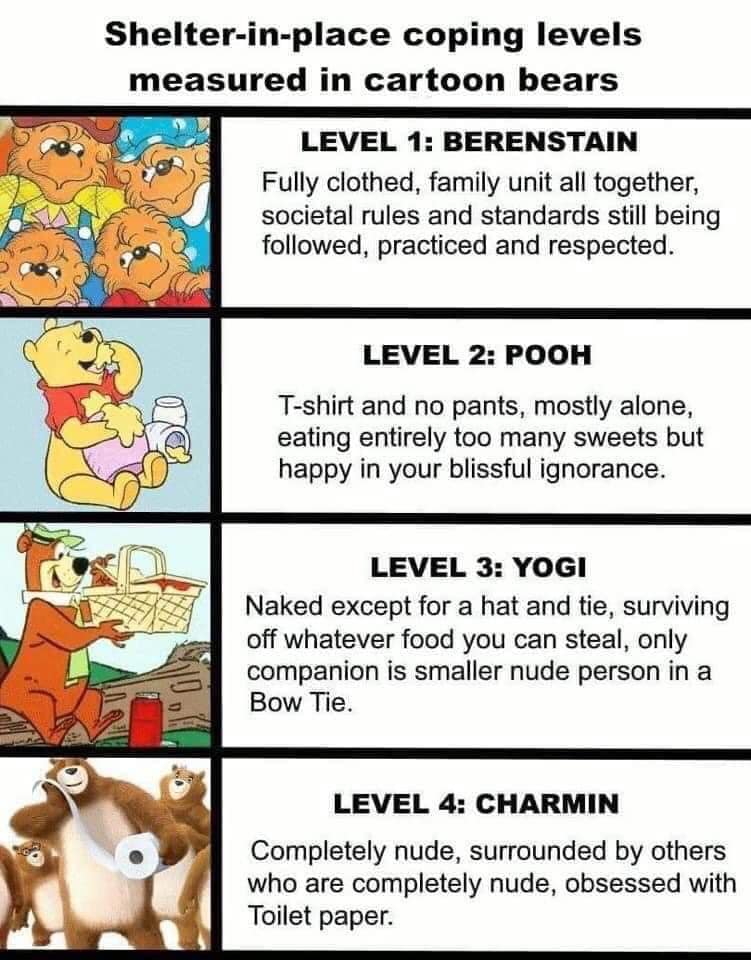 One college-aged user shared his experience with Nod, saying, “After trying Nod, I’ve become more aware of how gratitude impacts the people I love. With all of this time on my hands, it makes sense for me to let them know how much they mean to me.”
One college-aged user shared his experience with Nod, saying, “After trying Nod, I’ve become more aware of how gratitude impacts the people I love. With all of this time on my hands, it makes sense for me to let them know how much they mean to me.”
Nod is available in Apple and Google Play stores. In this physical distancing era, Nod encourages social sharing using the hashtag #YouAreNodAlone.
Indeed…as we #StayHome we are #AloneTogether. So however you can, please reach out via whatever digital on-ramps you have on-hand, from a phone call to FaceTime, Google Hangout, Zoom, text, email, game, or app like Nod. Exercise with a gym app, do Denise Austin’s indoor walking regime via AARP’s website, or join a yoga group online.
And speaking of “Yogi,” how about some comic relief – yesterday’s favorite COVID-19 laugh…shelter-in-place coping levels measured in cartoon bears. Laughter is some of the best medicine these days, right?! Keep on bearing this marathon moment for public health, my friends….
I’d love to shout out the original source of this meme as I always do, but I cannot identify it through my usual search processes. If you know it, please share the source with me and I’ll link to the artist or publisher.


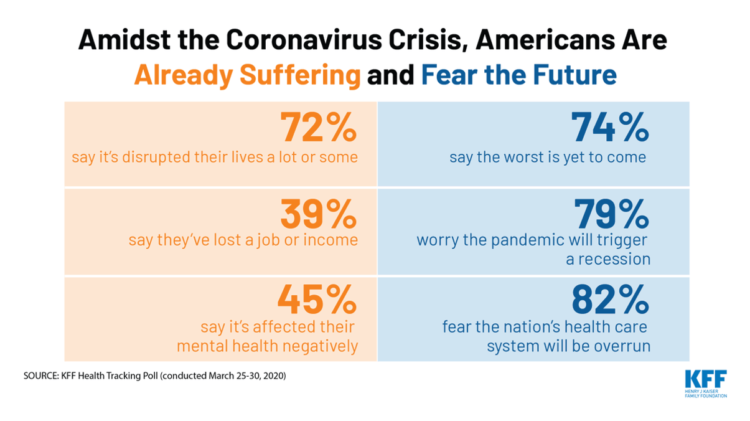


 Interviewed live on BNN Bloomberg (Canada) on the market for GLP-1 drugs for weight loss and their impact on both the health care system and consumer goods and services -- notably, food, nutrition, retail health, gyms, and other sectors.
Interviewed live on BNN Bloomberg (Canada) on the market for GLP-1 drugs for weight loss and their impact on both the health care system and consumer goods and services -- notably, food, nutrition, retail health, gyms, and other sectors. Thank you, Feedspot, for
Thank you, Feedspot, for  As you may know, I have been splitting work- and living-time between the U.S. and the E.U., most recently living in and working from Brussels. In the month of September 2024, I'll be splitting time between London and other parts of the U.K., and Italy where I'll be working with clients on consumer health, self-care and home care focused on food-as-medicine, digital health, business and scenario planning for the future...
As you may know, I have been splitting work- and living-time between the U.S. and the E.U., most recently living in and working from Brussels. In the month of September 2024, I'll be splitting time between London and other parts of the U.K., and Italy where I'll be working with clients on consumer health, self-care and home care focused on food-as-medicine, digital health, business and scenario planning for the future...